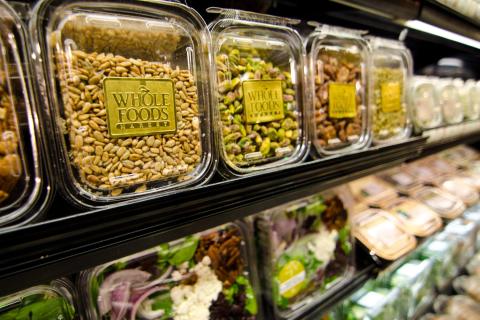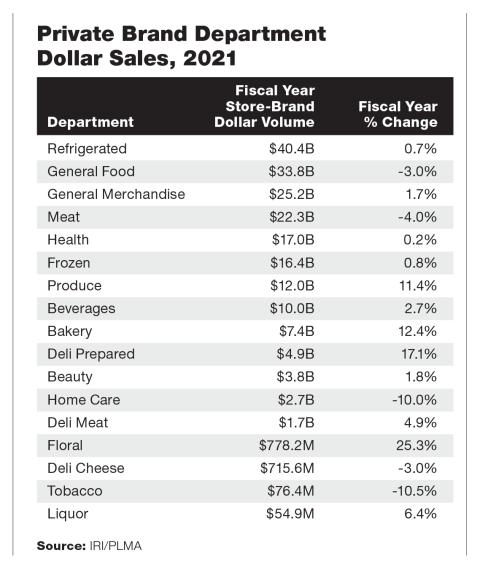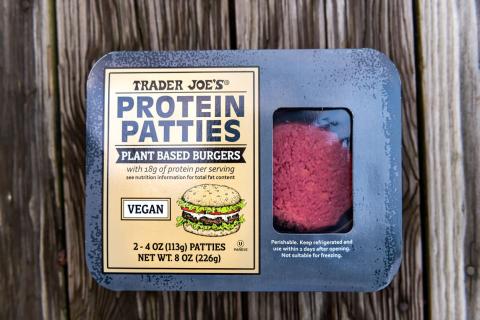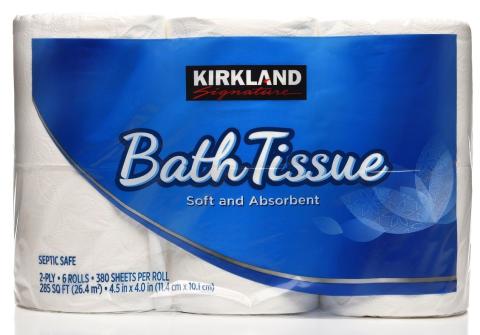Going Private: How to Succeed in Store-Brand Sector

With record inflation looming large in the minds of most American grocery shoppers, retailers’ private brands are well positioned to experience further growth this year. Experts stress, however, that it will take some renewed focus and ingenuity for grocers to truly take their strategies to the next level.
What’s the current state of private label? It depends on whom you ask and what you’re measuring. Dollar sales have certainly been up for private brands — but this is due in large part to higher prices. Additionally, private label saw a huge boost during the initial stage of the COVID-19 pandemic, when so many national brands were out of stock, but that growth has slowed since supply chain issues have eased, at least in some areas.
Chicago-based market research firm IRI reports that private-brand dollar sales grew 1% in 2021 to hit a record $199 billion in all U.S. retail channels. In comparison, in the first half of 2022, all-outlet dollars spent per household increased 7.9% for private brands compared with a year ago, while spending on national brands increased 5.8%.
Meanwhile, consumer unit purchases declined in the first half of the year for both private brands and national brands, indicating that consumers are buying less even though they’re spending more. The unit-per-buying-household drop was -2.2% for private brands and -4.1% for national brands.

Volume — yet another way to measure demand — will likely edge down a bit for both private and national brands in the coming months due to shrinkflation (that’s when manufacturers slightly reduce the contents of their packages while maintaining the same sticker price).
Private-brand dollar shares have softened overall in recent years, according to IRI data cited in an FMI report, “The Power of Private Brands 2022,” published earlier this year. Private-brand share of total dollar sales in all outlets fell to 17.2% in the year ending March 20, down from 17.5% the year before and 17.7% two years before. During this time, national brands likely benefited as more consumers who were stuck at home and gaining disposable income through stimulus payments traded up to more premium offerings.
When you look at the growth of private label, it needs to be recognized that retailers across the country have different strategies and different approaches, so it’s impossible to measure the “state of private label” in one fell swoop. Limited-assortment chains like Trader Joe’s and Aldi have made private brands a key part of their strategies, and as this format continues to gain ground across the U.S. landscape, it will broaden shoppers’ exposure to these brands and thus continue to grow private label as a whole.
Meanwhile, club operators such as Costco that have spent plenty of time and energy developing their own brands will continue to experience favorability with their core shoppers. Mass merchandisers like Walmart and Target have also rolled out multiple private brands over the years that will likely continue to appeal to their audiences. These formats tend to over-index on private label sales in comparison with conventional grocers.
Dollar stores are also starting to introduce more of their own brands, although it might be harder for them to maintain desirable margins, since they already have to keep prices so low.
[Read more: "Which Private-Brand Products Are Gaining Momentum?"]
These examples offer promise for the future of private label, but they also illustrate the enormous amount of competition that traditional grocers face in both brick-and-mortar stores and online. “You’re not competing one to one, private label versus the national brand,” notes Mary Ellen Lynch, principal consultant and team leader at IRI. “Any given private brand is also competing with other retailers’ store brands within the shopping universe of each one of your shoppers.”

Inflation’s Impact
While it’s not immediately clear how much private label will advance in the next few years, there’s no doubt that at least for now, inflation is playing a key role in how some consumers shop for these brands, especially in certain categories.
“We believe store brands will be a key consumer ally during this current inflationary period and going forward by providing high-quality, high-value products in every category,” says Peggy Davies, president of the New York-based Private Label Manufacturers Association (PLMA), in the trade group’s “2022 Private Label Report.”
At least one other observer also expects to see some long-term gains for private brands. “Inflation has reinvigorated the legacy function of private brands in their ability to provide savings and value to shoppers, which historically provides long-term growth and success to retailers during periods of economic downturn,” says Andrew Moberly, senior director of strategic advisory for Daymon, a retail branding firm based in Stamford, Conn. He notes that around the period of the Great Recession, from 2008 to 2010, private brands gained $8 billion in sales.
[Read more: "Which Retailer’s Private Label Brands Are Growing Fastest?"]
Fast-forward to 2022, and almost 30% of consumers who were surveyed in March said that higher prices had led them to buy more private brands, according to FMI’s report. Just over 40% said that they’ve been purchasing more private brands compared with before the pandemic, and three-quarters said that they expect to continue doing so in the future.
Defining the Frequent Private-Brand Shopper
FMI’s “The Power of Private Brands 2022” report finds some key characteristics of shoppers who say that they frequently purchase private brands:
• They skew female (58%).
• They’re more likely to be Millennials (37%) than Baby Boomers (22%).
• They’re likely to be in households with kids (40%) and have a slightly larger household size.
• They’re more likely to come from households with income of less than $50,000 (48%).
• They’re more likely to come from rural areas or small towns (41%) or urban areas (31%), compared with suburban areas (28%).
• They tend to spend more weekly on groceries ($168 versus $152).
• They’re most likely to claim a mass merchandiser as their primary store (37%), as opposed to a grocery store (30%).
Consumer Price Index (CPI) information released in July by the U.S. Bureau of Labor Statistics showed that the 1.3% inflation rate in June topped the previous month’s figure that was a 40-year high. The CPI for all items was up 9.1% for the past 12 months, while the CPI for food at home was 12.2% higher than last year.
As of late July, gas prices were finally starting to come down, and prices of some food items like cooking oil, coffee and avocados were beginning to drop, although they remained relatively high.
IRI’s Lynch notes that if gas prices start to return to a more normal range and consumers hold off on larger purchases because of high finance rates, we could see shoppers shift some household dollars to discretionary CPG goods or preferred brands that they previously put on hold.
More Than a Low Price
Beyond low prices, today’s private brands are also seen as providing good value — which is certainly a plus compared with years ago, when they were referred to as “generic brands.”
“Nearly 70% of consumers say private brands are a better value for their money,” observes Daymon’s Moberly. “Consumer expectation is at an all-time high, with shoppers looking for products that not only fit their budgets, but deliver on lifestyle needs ranging from health and wellness, to meeting sustainability desires, to minimizing environmental harm, to cultivating convenience.”
FMI’s report confirms this, noting that shoppers say the taste and quality of private brands they use are on par with national brands. Shoppers actually list taste as the No.1 factor in their product selection, whether they’re purchasing a private brand or a name brand.
“Retailers have worked hard in recent years to develop store brands as good as or even better than the national brands, so it comes down to getting shoppers to try them,” notes Lynch. “Driving consumer trial of store brands is key to success. And I think it’s even more important in the current inflationary climate, because shoppers won’t want to risk spending any of their budget on something that they or their family won’t like.”

Room for Growth
Over the past three years, one area of grocery that has shown a lot of growth potential for private label is meal components. IRI Omni Scan Panel data for all outlets year to date ending July 12 shows that items such as frozen raw shrimp, spices/seasonings, natural cheese slices, muffins, refrigerated and frozen uncooked meats, frozen appetizers, and refrigerated flavored spreads have all grown in household penetration since before the pandemic.
Meal solutions and components will likely remain a growth area for private label if consumers continue to eat at home more, either to save money or fit work-at-home lifestyles, according to Moberly.
FMI’s study confirms what some of IRI’s data shows, as consumers who qualify as “frequent private-brand shoppers” say that they tend to purchase store brands in the following categories: fresh bakery items (35%), nonprescription drugs (26%), milk (25%), fresh prepared meals (24%) and deli foods (23%). Categories in which they purchase top national brands include packaged alcoholic beverages, pet food, plant-based meat alternatives, coffee and tea, and HBC products.
PLMA, for its part, has recognized the growth potential for products that feature healthier attributes, and has focused on this during its most recent trade shows. These attributes include vegan, clean, plant-based, free-from, natural, organic, keto, high-protein, functional, probiotic, prebiotic, gluten-free, heart healthy, sugar-free and low-fat.
In addition, the trade association lists sustainability, fresh food and ethnic/international foods as other growth areas for private label.
Another category related to health and wellness that’s attracting interest from private brands is fresh produce. GoldenSun Insights, a Batavia, Ohio-based strategy-centric firm focused on the fresh produce supply chain, supports clients with strategy, business development and marketing, including in private label. President and co-owner Randy Riley notes that one way to add value is to create more sustainable packaging. Retailers also need to be as transparent as possible, whether through their messaging to consumers or by featuring social certification programs.
“The story behind the brands is going to be the biggest factor for private labels moving forward,” he predicts. “Consumers want to know the story behind who is growing their food and how it’s being grown, and a private label can hinder that a bit.”
Riley also notes that organic versions of private label are seeing development across the produce category.

Tips to Succeed
Lynch advises retailers to be shopper-centric as they evolve their store brands. “Really know the shoppers in your communities and recognize that your communities are all different and may have nuanced needs,” she suggests. “Speak to them in their own terms. That’s what’s going to win, and that’s what the big national brands are doing. They’re leveraging highly focused, targeted messaging, promotions, deals and other communications to retain their most valuable customers.”
She adds: “A very valuable grocery-buying cohort going forward is the shoppers who are building households, growing families. They are at a stage in life where they buy more stuff. It’s important to make sure you’re addressing their evolving needs and capturing them with your store brands.”
Consumers that fall into both the Millennial and Gen Z groups tend to be way more aware of environmental concerns, and retailers should consider offering sustainable packaging and production or plant-based alternatives when it makes sense, Lynch observes.
“If you can make a product sustainable while being affordable and with a clean label, that’s a trifecta,” she asserts.
Looking ahead, as long as inflation remains top of mind for shoppers, retailers would do well to think about offering weekly deals in the categories hit hardest by inflation, Lynch continues. This is especially important, since consumers are making more trips and shopping more stores to find the best deals.
Along those same lines, the “2022 Private Brand Intelligence Report” released earlier this year by Daymon suggests that retailers think more about product placement in their stores, including secondary placement options such as destination sets and end caps.
Moberly also advises retailers stay on top of consumer trends and keep innovating as they plan ahead. He suggests that those retailers that focus on an omnichannel strategy — encompassing not just their stores, but also their online business — will best position themselves to win.

In the past, retailers could rely more on the in-store environment to promote their store brands. Today, in our omnichannel world, consumers can find a product anywhere, so retailers must have an online presence for their brands. Daymon’s report suggests that private brands must be fully represented online across display and search, and must be part of the retailer’s integrated strategy.
However, there’s also the possibility of overpromoting your store brands online to the point of annoying shoppers. “You want to build awareness, yet you don’t want to turn off shoppers who might find themselves wading through a lot of stuff to get what they want,” cautions Lynch.
FMI’s report notes that there’s an opportunity for more retailers to tie their loyalty programs to their private brands — particularly when it comes to the online side of the business. Only a third of shoppers using their grocery store’s loyalty program said that they receive extra points for purchasing store brands. This is a way for retailers to promote more online private-brand purchases including the use of digital coupons.
Looking at business fundamentals, Daymon advises retailers to set appropriate key performance indicators (KPIs) and look beyond just sales figures. “While the overall goal of a product for brand owners is sales, innovative items may serve different purposes, such as consumer loyalty, incremental purchases or basket size,” the report notes.
The Daymon report also points out the importance of innovation in every tier of private label — not just the premium tier. A Daymon custom analysis found that innovation is actually most important in the mainstream tier of private label. “Brands need to shift their focus beyond premium, to deliver interesting and consumer-centric products that fit every need,” the report advises. “By creating a balance of innovative and core items across the portfolio, this will help bridge the gap between tiers, promoting new trial while providing for every need and price point.”
The report cites Monrovia, Calif.-based Trader Joe’s as an example of a company that has built upon its success in private-brand innovation. The retailer opted to use its popular Everything but the Bagel seasoning in other products and categories across the store, such as chips and dips.
Last but not least, retailers need to pay more attention to supply chain management as they grow their private label programs, experts advise.
“Retailers must be proactive in managing their supply chain and private-brand program strategies across three critical levers — supplier networks, pricing and marketing — to prepare for future consumer needs,” notes Daymon in its report.
What wasn’t mentioned in any of the reports — but what may be viewed as the elephant in the room — is the delicate balance that grocery retailers must continue to maintain between building their own brand strategies and their ongoing commitment to and dependence on national brands. Some observers suspect that as commodity prices start to come down, major CPG brands may start executing more and deeper promotions, which could end up outshining the appeal of private brands in the coming months.
Here are just a few examples of retailers getting more creative with private label, as published on Progressivegrocer.com in recent months:
Neckarsulm, Germany-based discount retailer Lidl, which now operates about 170 stores in nine East Coast states, is running a price-cutting campaign over the summer that features more than 100 items ranging from frozen prepared foods to household products. The largest savings will be on items such as Black Angus top sirloin steak, dried cherries, orange juice, ground coffee, bratwurst, hot Italian sausage, apple juice and pound cake. The retailer didn’t specify how many of its own brands would be included in the campaign.
Ahold Delhaize USA’s Peapod Digital Labs has launched an Incubator Program for certified diverse-owned suppliers to develop “new, exceptional-quality private-brand products.” During the two-and-a-half-month program, the chosen participants will learn from the company’s private-brands team about its private-brand structure and goals, and will grow their knowledge of its existing brands. Participants will be paired with private-brand mentors, who will help them prepare for their final product pitch.
Regional chain Raley’s, based in West Sacramento, Calif., has implemented CMX1 for Grocery, a private label management solution from CMX that enables sourcing, supply chain transparency and supplier compliance. “CMX1 for Grocery has taken what was once a largely manual process across multiple systems at Raley’s and enabled us to have a single solution with standardization and automation for how we manage our private label program,” said Elodie Thao, Raley’s senior food safety and quality assurance manager, who noted that the chain is gearing up to expand its offerings.




